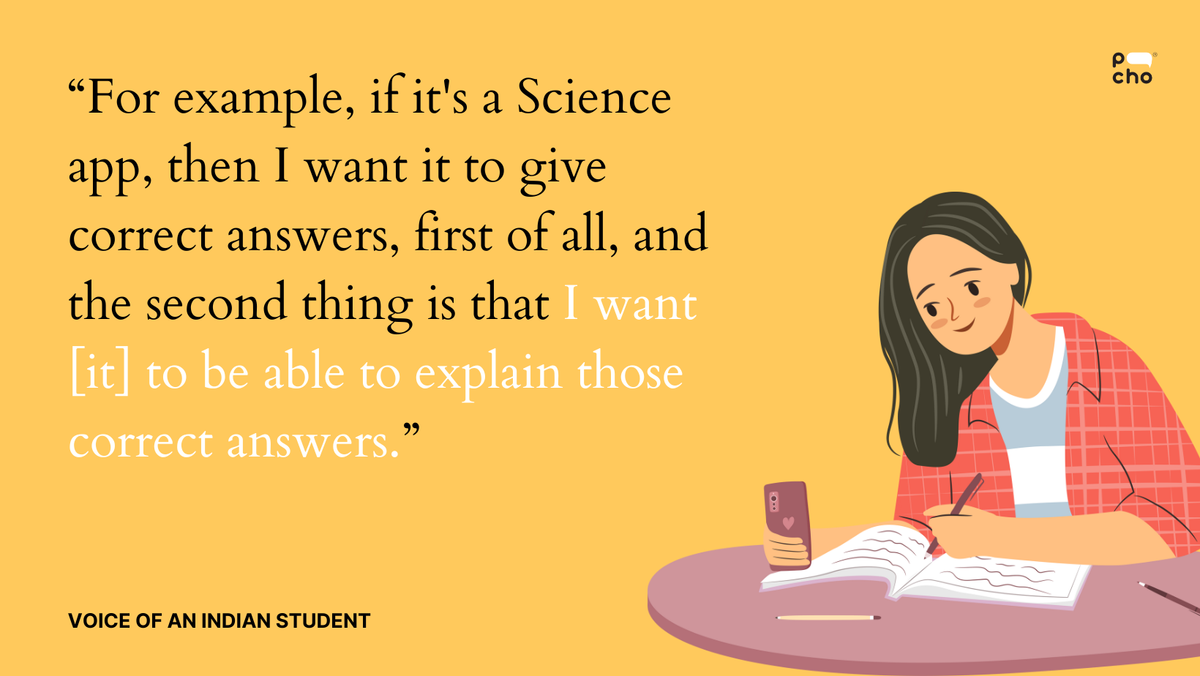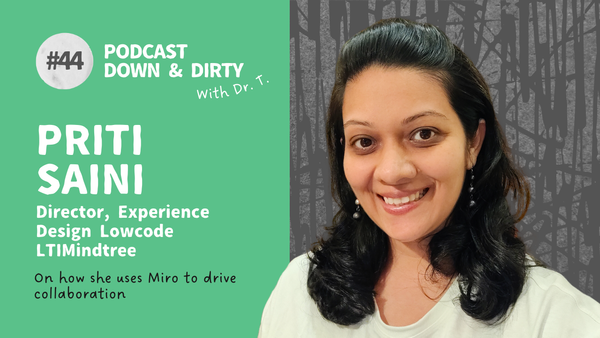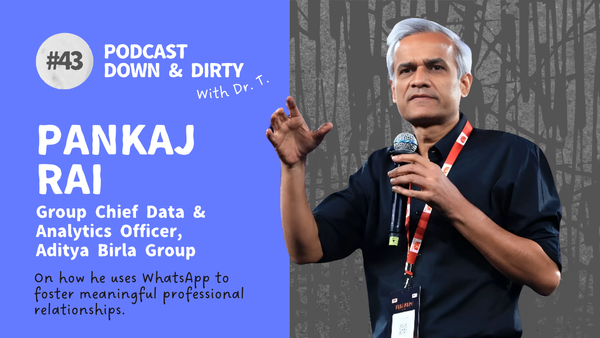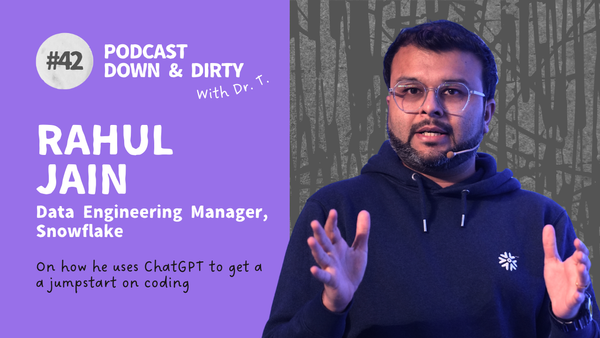💬What does this 10th grader like about apps like Khan Academy?
School education needs to factor in exams, scores and the prescribed curriculum. This student's narrative suggests that edtech solutions must marry structured and unstructured learning to make it fun and knowledgeable.

Written by Mahalakshmi S
- Interview recorded on: May 22, 2022
- Age of the participant: 15 years
- Gender: Female
- School: Private school in Mumbai
- Class: 10th grade
- Board: ICSE
Being a 10th grader is in a way the most crucial point in one’s life. After all, the scores here decide the educational journey and the career path. Sometimes, our passion for a subject takes a back seat in pursuit of a ‘good’ career. Dhrithi*, a short haired bespectacled 10th grader with an impish grin studying for the ICSE Board finds herself on the cusp of this path and she hopes to make the right decisions.
She joined Poocho for a chat over Zoom with her father on a Saturday evening. When asked about the subjects she likes, she glanced sideways at her dad, with a sly smile but a decisive shake of her head she said, “To be honest, I dislike whatever I'm studying. And I do not plan to revisit it after I finish 10th. I mean I don’t like it but I have to do it.”
She likes certain aspects of different subjects. For example, she likes organic Chemistry, writing essays in English, a bit of History and finds Computer Applications completely bewildering. Yet, she plans to choose Math and Science when she shifts to IB board for her final schooling years. Dhrithi is still trying to find her niche. A major chunk of her time is taken up by trying to understand concepts, attending tuitions, preparing for her exams and completing her homework. Nevertheless, she tries to find joy from playing guitar, reading books, meeting her friends, going for a walk, eating and of course ridiculously long baths!
There are many touchpoints to getting her doubts solved
Dhrithi doesn’t believe in rote learning and wants to understand concepts so she can do better in her studies. She tries to accomplish this by asking her dad – her first stop for Science and Math-related questions. Her dad tries to explain whatever he can by reading books and looking up on the internet though he has been out of touch for many years. But when that does not work, she goes online and tries to find the solutions and has been doing so from 7th grade: "When everyone has doubts they go to the internet for those doubts. It's almost like a guru of sorts, you know," she explained.
She’s come across multiple websites which use different methods to provide the answers – some give stepwise solutions and others don’t. Those which do, such as SciMath and Mathway, sometimes use a different method which she is not aware of or is not what is used in school. But Dhrithi is impressed with Khan Academy. Though the site material is not really on school work per se, the instructors explain concepts using video demonstrations and easy explanations that she finds helpful.
She says with a laugh, “Most of my questions are out of the syllabus!” In such cases, she relies on the internet to get her doubts answered. Nevertheless, there are drawbacks that hinder her learning. For instance, she said, “It would be really nice if they showed those other methods too because many of the times I'm completely stuck with one particular method if I have never learnt it before and I don't know what they're saying.”
Sometimes technical issues such as the page not loading even after refreshing multiple times adds to the inconvenience. Dhrithi wants an app that is ‘intuitive.’ That is, “I shouldn't be going around and asking the internet about how to use this app, I should be able to figure it out on my own and it should look nice.” Further, she places more importance on the ‘why's’ and ‘how's’ than just the answer:
“For example, if it's a Science app, then I want it to give correct answers, first of all, and the second thing is that I want to be able to explain those correct answers.”
Her father likes that there are many options than just acquiring knowledge for the sake of marks. However, his main concern is the privacy and safety of these apps and websites and would prefer to be notified when his kids are downloading something.
Her primary goal is to understand concepts
Dhrithi finds comfort in finding answers online, asking her dad or sometimes her tuition teacher but not her school teachers. Her dad was with her when we were chatting and he quipped in by saying, “She is an introverted kind of girl.” I prodded Dhrithi about her hesitation to ask questions and she said, “I have to talk…!” She paused for a bit then added, “I don't really know. It's just that I don't want to ask.” But her father had the most “dad response” to that – “There are no stupid questions. Only stupid question is the one that you don't ask.”
Moving out of her comfort zone and taking her queries to her teacher might be difficult for a teenager who is already facing a lot of pressure. But Dhrithi knows she needs that extra help, especially in Math and Science in her 10th grade as she cannot do it all on her own: “It's not possible for me to study the whole thing on my own because I need to practice the questions too and doing that takes time.”
In her 9th grade, she tried to get help through an online course for science through AhaGuru and loved the website because, in her words, the “Answers were in-depth and they explained the topic down to the smallest detail” though she added, “It was actually a high-level course, and I really enjoyed doing it.”
Because the course was online Dhrithi faced a different kind of challenge - she found herself unable to concentrate for long due to distractions. The material, while very interesting, was also different from her school syllabus. It was just adding to the time constraints she was facing and eventually had to stop taking the course. So, in her 10th grade, she took physical tuition, which was syllabus focused and comprised a small group of students. This helped her get personal attention and feel comfortable asking her queries in person.
There are times when none of these avenues work. For instance, she was reading on the topic of Work, Power and Energy in Physics which had a concept called ‘component of force,’ and she tried to understand it through various sources:
“My dad didn't get it either, So I asked my tuition teacher, and I don't know if she understood the question or not. But I didn't get the answer I was looking for. So I just went and read the chapter a couple more times. And then I got the concept.”
Dhrithi is a budding student, who understands that her choices are going to shape her future and just wants a safe zone to grow. Sometimes teachers and parents are unable to give it due to various constraints. This gap can be filled by ed-tech offerings that are syllabus-focused yet give curious teenagers like Dhrithi the opportunity to explore concepts tangential to her syllabus material. After all, there should be no limit to learning, right? Dhrithi seems to agree, “The app should not be very restricted to one type of content. Like, if I have some question which goes outside the app's programming, then?”
*We anonymize participant names to protect their identities



